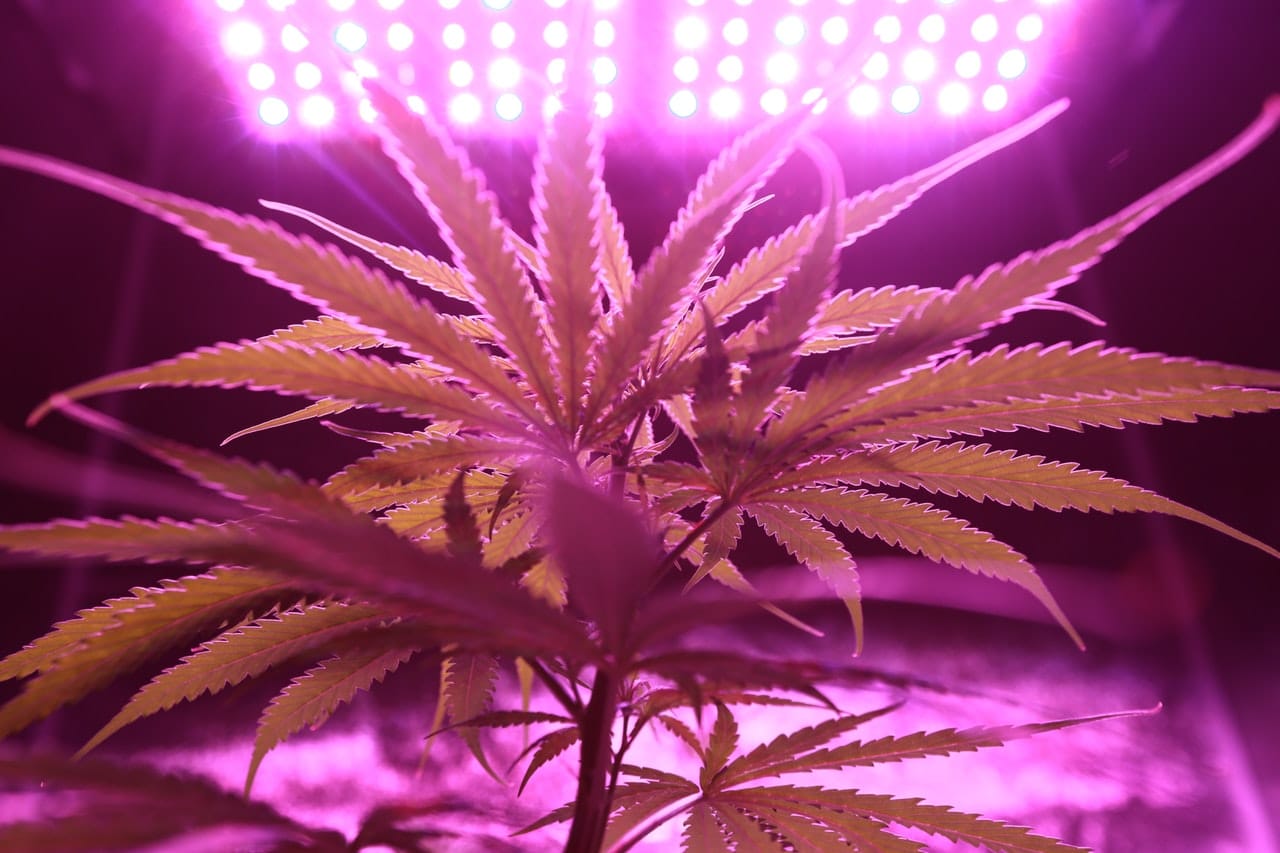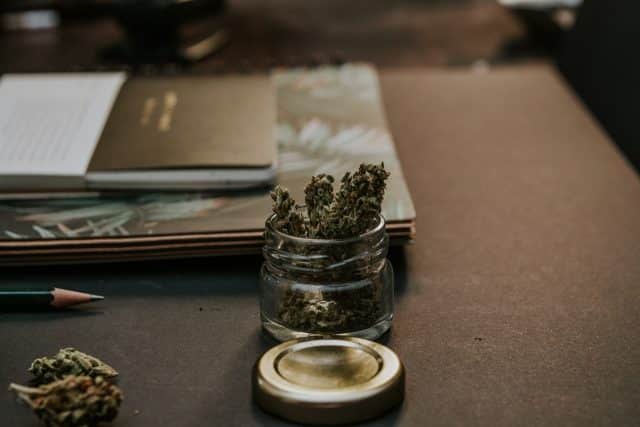

Marijuana, also known by cannabis, weed, grass, shake, ganja, reefer, dope, hash, herb, chronic, and many other names, has a reputation for being a safe narcotic.
In reality, there are no 'safe' narcotics, and the potential for addiction to 'weed' (as it will be henceforth referred to) has well earned its place on the DEA Schedule 1 list of dangerous, addictive drugs. Let's read on to see just how weed can be addictive and habit forming.
"Don't Panic, It's Organic" one popular cannabis-related slogan reads. The 'Good Time' reputation weed has, due in part to its role in the burgeoning hippie movements of the 60s and early 70s, has led many substance abusers and addicts astray.
Popular TV shows and movies such as "That 70's Show" and "Harold and Kumar Go To White Castle" portray weed abuse as being, at worst, mildly intoxicating. Unfortunately, even casual marijuana consumption can permanently alter your brain chemistry.
The team found that persistent marijuana use was linked to a decline in IQ, even after the researchers controlled for educational differences. The most persistent users — those who reported using the drug in three or more waves of the study — experienced a drop in neuropsychological functioning equivalent to about six IQ points (PNAS, 2012). "That's in the same realm as what you'd see with lead exposure," says Weiss. "It's not a trifle."
https://www.apa.org/monitor/2015/11/marijuana-brain
Not a good time. Not a laughing matter. Yet, the most chronic 'chronic' users will deny addiction, even as they go for their bedside' wake and bake' (referring to getting high first thing in the morning after waking up).

In a sense, weed is not addictive in the same way that heroin is. Your body does not develop a physiological need for it. However, the active ingredient in weed, Δ9‐tetrahydrocannabinol (THC), quickly invokes a resistance in the human body. More and more weed or weed products are needed to stay high.
What are some of the positive aspects of weed that encourage people to avoid withdrawal (and therefore, spur addiction?)
THC interacts with the reward system of your brain and dumps dopamine, much like harder drugs such as methamphetamine, cocaine, and others. This leads to a sense or feeling of euphoria and stress relief.
Weed allegedly can treat certain types of pain - a self-medicator dependent on weed may not want to get clean due to an injury or pain.
Weed can also interfere with the formation of memories, and the cessation of it may force an individual to deal with a trauma or other event that weed helped them to forget.
Other symptoms of withdrawal include diminished appetite, stomach or digestion issues, depression, chills, inability to focus on a task, sweating, headaches, rapid mood changes, irritability, insomnia or other sleeping disorders.
Many users will also experience intense cravings for marijuana, similar to the way a smoker craves a cigarette.

Marijuana use disorder becomes addiction when the person cannot stop using the drug even though it interferes with many aspects of his or her life. Estimates of the number of people addicted to marijuana are controversial, in part because epidemiological studies of substance use often use dependence as a proxy for addiction even though it is possible to be dependent without being addicted. Those studies suggest that 9 percent of people who use marijuana will become dependent on it,24,25 rising to about 17 percent in those who start using in their teens.26,27
https://www.drugabuse.gov/publications/research-reports/marijuana/marijuana-addictive
To summarize this excerpt, the 'use disorder' of weed becomes an addiction when you cannot force yourself to stop using it, despite having one or more compelling reasons in your life to do so.
According to DrugAbuse.gov, only 10% of people will become addicted, a much lower rate than heroin or methamphetamines. If that's the case, then why is it so important to reach out to and try to help marijuana addicts?

Paralleling the rise in marijuana use disorders, treatment admissions for primary marijuana dependence have increased both in absolute numbers and as a percentage of total admissions, from 7 percent in 1993 to 16 percent in 2003 (SAMHSA, 2004). The extent of marijuana use and its associated consequences clearly indicate a public health problem that requires systematic effort focused on prevention and intervention.
https://www.ncbi.nlm.nih.gov/pmc/articles/PMC2797098/
Even with a rise in the prevalence of treatment facilities and staff trained to handle marijuana addiction, it is the forgotten addiction. Individuals are far less likely to admit an addiction to marijuana than they would to say, heroin or amphetamines.
This is once again linked to popular depictions of marijuana in media and society as being a harmless narcotic, as opposed to the dangerous substance it is.
As an additional word of warning, the rise of THC oil products, such as "dabs," "wax," "shatter," and "budder," make it very easy to deliver massive doses of THC to addicts. THC concentrates in such products usually begins around 70%, or seven times stronger than a regular marijuana joint.
This super-dose of THC means that from the very first hit, the subject is already well on their way to developing an unfortunate resistance to THC.
Other products containing THC that addicts may utilize are soap, lotions, toothpaste, personal lubricants, candy, shampoo, and many others.
There is also a rise of THC being included in food items, such as brownies, cookies, and other foodstuffs.
Consult with a doctor or addiction expert before starting a recovery journey from marijuana. Like all narcotics, it can be an arduous process, but the payoff is absolutely worth it.
Yes, someone can be addicted to weed. While marijuana is often perceived as less addictive compared to other substances, it can still lead to dependence, especially with heavy or prolonged use. Individuals may experience withdrawal symptoms and find it challenging to quit despite negative consequences.
Marijuana addiction can impact daily functioning and overall health by affecting cognitive abilities, emotional regulation, and motivation. It may lead to difficulties in maintaining responsibilities at work, school, and in personal relationships. Additionally, long-term use can have health consequences, including respiratory issues and potential mental health effects.
Treatment options for individuals struggling with marijuana addiction typically include therapy, counseling, support groups, and in some cases, medication. Cognitive-behavioral therapy (CBT) and motivational enhancement therapy (MET) are commonly used approaches to address addiction-related behaviors and motivations. Support groups like MarijuanaAnonymous can also provide peer support and accountability. Additionally, medications maybe prescribed to manage withdrawal symptoms or co-occurring mental health conditions.
Several risk factors can increase the likelihood of developing a dependency on weed.Genetics play a role, as a family history of substance use disorders or addiction can predispose individuals to marijuana dependency. Early initiation of marijuana use, especially during adolescence, is associated with a higher risk of dependence.Environmental factors such as exposure to peer pressure, easy access to marijuana, and social norms supportive of drug use can also contribute to dependency. Additionally, individuals with co-occurring mental health disorders like depression, anxiety, or trauma may be more susceptible to marijuana dependency as a form of self-medication.Chronic stress or trauma can further increase the likelihood of using marijuana as acoping mechanism, potentially leading to dependency over time.
Addicts may disappear for various reasons, often related to their struggle with substance abuse and the accompanying challenges. One common factor is relapse, where individuals return to drug use and retreat from their usual surroundings, sometimes feeling overwhelmed by shame or guilt. This desire to avoid confrontation or pressure to seek treatment can drive them to isolate themselves, compounding feelings of isolation and hopelessness.
Additionally, addicts may disappear to seek out drugs or engage in drug-related activities without interference, reflecting a prioritization of substance use over other aspects of their lives. Co-occurring mental health issues, such as depression or anxiety, can exacerbate these tendencies, leading individuals to withdraw further from social support systems. In some cases, addicts may also vanish to evade legal repercussions or escape unsafe environments associated with their addiction. These reasons underscore the complex interplay between addiction, mental health, and external pressures that can contribute to an individual's disappearance.
If a loved one battling addiction goes missing, it's crucial to act swiftly and effectively. Begin by contacting local hospitals, jails, and homeless shelters to inquire about their whereabouts.Reach out to mutual friends or acquaintances who may have information, and consider filing a missing person report with law enforcement. Utilize social media and community networks to spread the word and solicit assistance in locating your loved one. Additionally, consider seeking support from addiction treatment centers or support groups for guidance and resources in your search efforts. Time is of the essence, so take proactive steps to locate your missing loved one and ensure their safety.
When a loved one who is struggling with addiction goes missing, there are significant risks and dangers to consider. They may be at heightened risk of experiencing harm or injury, particularly if they are engaging in high-risk behaviors associated with substance abuse.Without access to necessary medication or treatment, they may face health complications or exacerbation of existing medical conditions. Additionally, individuals who are missing and battling addiction may be vulnerable to exploitation or victimization, including involvement in criminal activities or becoming victims of violence. Furthermore, their absence can cause immense emotional distress and uncertainty for their loved ones, compounding the already challenging circumstances of addiction. Prompt action and effective communication with authorities and support networks are essential to mitigate these risks and ensure the safetyand well-being of the missing individual.
Dealing with the stress of a loved one's disappearance, especially when they are struggling with addiction, can be overwhelming. It's essential to prioritize self-care and seek support from others during this difficult time. Engage in activities that promote relaxation and stress relief, such as exercise, meditation, or spending time in nature. Lean on your support network of friends, family, or support groups who can offer empathy, understanding, and practical assistance. Additionally, consider seeking professional counseling or therapy to process your emotions and develop coping strategies.
For other family members, encourage open communication and mutual support as you navigate this challenging situation together. Establish boundaries to manage expectations and avoid burnout, and remember that it's okay to ask for help when needed. Stay informed about the progress of the search efforts while also allowing yourself and others time to grieve and process emotions. By taking care of your emotional well-being and fostering a supportive environment for your family, you can better navigate the stress of your loved one's disappearance and support each other through this difficult time.